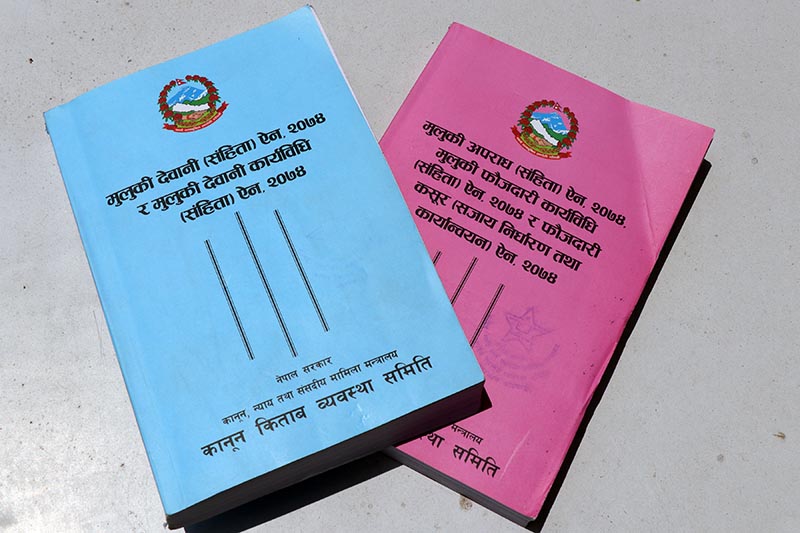Govt told to decriminalise defamation
Kathmandu, December 1
The task force formed by the Ministry of Communications and Information Technology to suggest changes to make new penal code media-friendly has recommended decriminalisation of defamation.
The 15-member task force led by senior journalist Dev Prakash Tripathi submitted its report to Minister of Communications and Information Technology Gokul Prasad Baskota yesterday.
Task force member Govinda Acharya, who is also the president of Federation of Nepali Journalists, said the task force recommended the government to decriminalise defamation and bring a new press law to deal with professional conduct and work of mediapersons.
“We have made recommendations in clauses from Section 21 to 308 of the new penal code that we thought curtailed press freedom,” Acharya said. He said the task force also suggested changes in Section 50 (3) of the new penal code that prohibited journalists from ‘pressuring’ the president.
“We have suggested that the journalists should be prosecuted only if they use force against the president. This article should not be invoked against journalists for criticising the president,” he added. “We have told the government that a separate press law should be enacted to deal with journalists’ journalistic work. No other law should be invoked against journalists to punish them for their professional work,” Acharya said, adding, “If a journalist violates any criminal law of the country, then s/he should be punished under that criminal law, but s/he should not be penalised for doing his/her journalistic job.”
Acharya said the task force also recommended that the government enact new press laws in consonance with comprehensive media policy practised in democratic countries.
Another member of the task force, Rajesh Ahiraj, said the task force also suggested that the government amend provisions of the new penal code that required photojournalists to take permission from an individual before taking his/her pictures. “If this law remains unchanged, then a photojournalist cannot take a picture of somebody who may be committing a crime,” he said.
He added that journalists’ news reports and articles could often defame a corrupt person, but they should be allowed to do that as long as their professional work served public interest. He said the task force suggested amendment to Section 50 (3) of the new penal code as it barred journalists and cartoonists from criticising the government through their work.
Ahiraj said Electronic Transaction Act had been badly misused by law enforcement officers to punish journalists. “Under ETA, even sharing news content on social networking sites that the administration deem objectionable has been criminalised. Such provisions must be repealed,” he added.
Minister Baskota said he had not read the contents of the report yet, but the government was of the view that any issue related to press should be dealt with press law.






